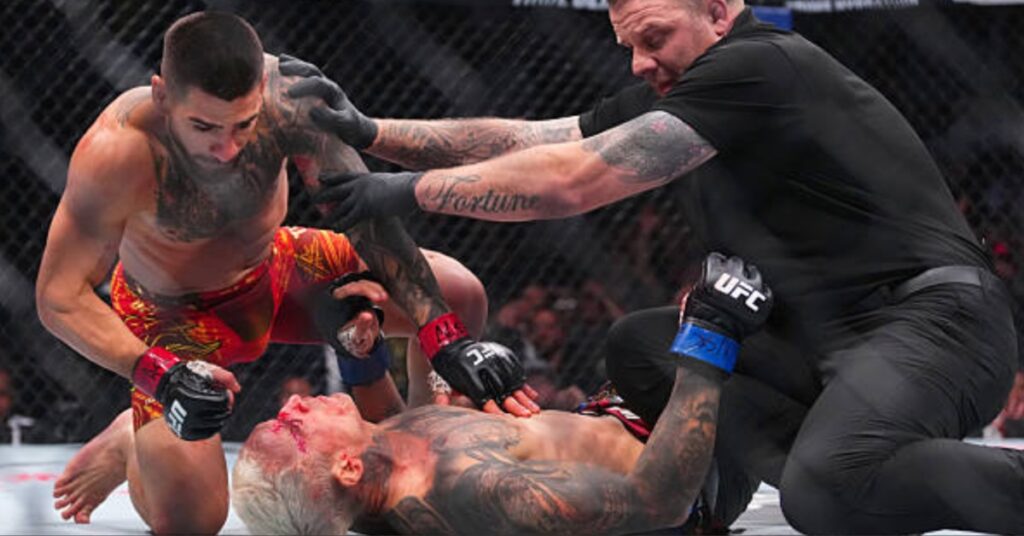Gian Villante Receives TUE For Recent USADA Test Failure

USADA has issued the second retroactive therapeutic use exemption (TUE) of their drug testing partnership with UFC.
One week after it was announced that Cristiane “Cyborg” Justino had received the first retroactive TUE of the USADA era for her cleared medical use of banned diuretic spironolactone, word arrived today that light heavyweight Gian Villante had failed a test for banned substance vilanterol, but will not receive sanctions or be removed from his upcoming bout against Shogun Rua on March 11.
A report from MMA Fighting revealed Villante was using a Breo Ellipta, an inhaler used to treat chronic obstructive pulmonary disorder – better known as asthma. The Breo Ellipta inhaler apparently contained vilanterol, a banned-at-all-times substance classified as a Beta-2 Agonist under the World Anti-Doping Agency (WADA) Code. Villante failed an out-of-competition test on January 18 and even though his team disclosed the use of the Breo Ellipta, he was informed he would receive sanctions if he did not have a TUE to use the treatment containing a banned substance.
Villante then applied for the exemption, providing all the necessary proof that his doctor had prescribed him a 14-day course to assist in treating airflow and asthma. Villante was cleared with the following release by USADA following the investigation, stating it had “determined that the athlete had an unequivocally diagnosed acute medical condition for which the use of vilanterol is consistent with the standard of care.”
USADA declared Villante’s use of vilanterol to be within the therapeutic recommendations of his doctor, and not intended to serve as any performance-enhancing substance. On new ground for the USADA’s testing protocol with the UFC, Villante’s TUE was only revealed because it resolved a potential anti-doping failure, as TUEs are normally not released due to medical privacy. His potential violation was not announced to the public as has been the case with many other competitors receiving potential failures due to positive tests.
From one sense, it is good that USADA is taking the time to effectively research each fighter’s personal medical circumstances and discern what their specific medical needs are as opposed to merely handing out potential violations. Their partnership with the UFC is certainly an ongoing work in progress, but it could also use some more consistency if it’s truly going to weed out cheaters in the UFC.
For example, Cyborg never disclosed she was taking spironolactone until after she failed a test, which could be a punishable offense in and of itself, but she was let off the hook after her TUE. Villante’s positive test results were also not announced, so even though he was obviously having his medical circumstances and application for a TUE reviewed, it’s fair to ask why the situation wasn’t released when fighters like Yoel Romero and Tim Means’ potential violations were immediately revealed even though they blamed tainted supplements are were then cleared following a USADA investigation.
Those few but nevertheless concerning inconsistent interpretation of the rules, paired with the suspect timing of the revealing of former heavyweight champion Brock Lesnar’s failed pre-fight test heading into his blockbuster UFC 200 fight against Mark Hunt, where the hulking behemoth was allowed to fight and batter his opponent while on PEDs, prove just how far the UFC and USADA have to go in fairly and objectively cleaning up the sport of MMA.






